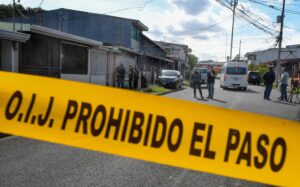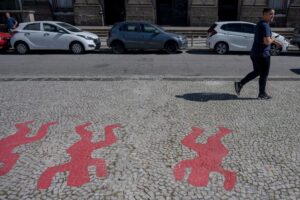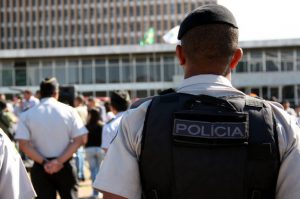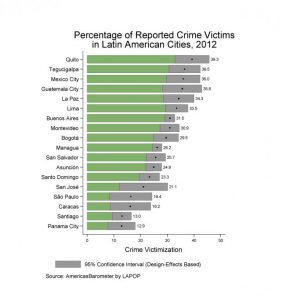
Costa Rica’s ‘Safe Haven’ Faces a Reckoning
The country is experiencing an unprecedented security crisis ahead of the February 2026 election.

AQ Podcast: How Crime Is Affecting Latin American Politics
Criminal infiltration of formal economies and politics is shaping elections in Latin America.

AQ Podcast | How Organized Crime Is Evolving in Latin America: 2025 Edition
While homicide rates are stable, criminals are getting an influx of cash from cocaine, gold mining and human trafficking.

AQ Podcast | A Critical Election in Ecuador
An overview of what to expect in politics, the economy, and Ecuador’s relationship with the new government in Washington.

AQ Podcast | Ecuador’s Difficult Battle with Organized Crime
An analysis of the numbers on the war on crime, Noboa’s reputation at home and abroad and a look at Ecuador’s economy.

Despite Record-Low Murder Rates, Brazilians Feel Less Safe
Homicide rates have fallen steadily in recent years, but over a third of Brazil’s public believe that violence has increased since Lula took office.

AQ Podcast | The Shifting Sands of Organized Crime in Latin America
An overview of how homicide and other crimes are evolving in the region

AQ Podcast | Ecuador’s Crossroads: Can Noboa Succeed?
An overview of the Americas’ latest front in the battle against organized crime.

AQ Podcast: How to Think About Latin America’s Security Crisis
An expert with firsthand knowledge discusses new crime dynamics and ways forward.

As Concern Over Crime Rises, Chile’s Boric Shifts Right
The deaths of three police officers in the space of a month has added to the already acute security woes facing the government.

AQ Podcast: How Organized Crime Is Changing In Latin America
An overview of the security landscape in the region, including how organized crime is pushing into previously calm countries

This Brazilian State Seems to Have Turned a Corner on Violence. But Can It Last?
When AQ visited Ceará in 2018, it was among the most violent in the country. A lot has changed.

Three Measures Brazil Should Take to Face Organized Crime
The anti-crime package in Congress now may not be enough to fight transnational gangs.

Targeting “Hot Spots” Could Drastically Reduce Latin America’s Murder Rate
Leer en español | Ler em português In Bogotá, just 1.2 percent of street addresses account for 99 percent of homicides. In Medellín, 40 percent of all crimes occur in just 10 hours of the 168-hour week. Perhaps more than any other part of the world, homicide in Latin America is concentrated by time and place … Read more

Latin Americans’ Perceptions of the Challenges of Urban Living
Rapid urbanization has shaped Latin American societies for the last half century. Across the Latin American and Caribbean region, about four out of every five citizens now live in an urban area. Nearly two out of every five citizens of the region live in an urban area with more than 1 million inhabitants.[1] The region’s … Read more


